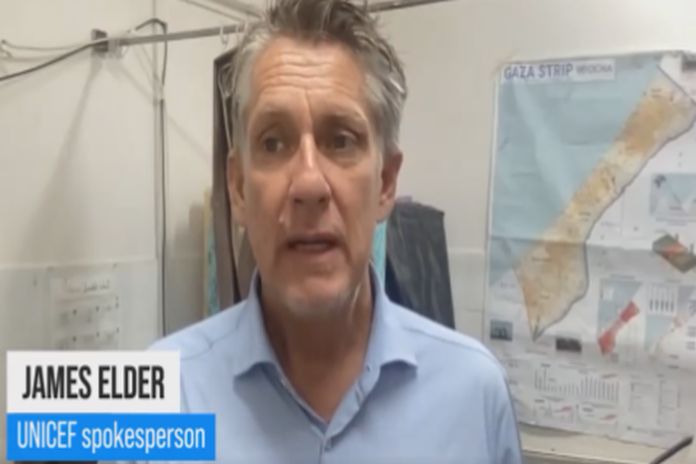GAZA, CITY – As the pause in fighting in Gaza appeared to enter a fifth day on Tuesday, UN humanitarians warned that aid deliveries needed to multiply immediately to save the lives of the injured and stem the risk of a deadly disease outbreak that has left doctors “terrified.”
Priorities include transporting fuel to the north of the war-torn enclave, so that it can be used to power hospitals, provide clean water and maintain other vital civilian infrastructure.
Such services have been massively impacted by weeks of Israeli bombardment in response to Hamas’s 7 October massacres in southern Israel that left some 1,200 dead and around 240 taken hostage.
Gazan health authorities have reported that more than 15,000 people, mostly women and children, have been killed in attacks to date.
Threats from the air and ground
In an update from southern Gaza, UN Children’s Fund (UNICEF) spokesperson James Elder said that a doctor from Al-Shifa hospital in the north had told him that the threats to children were “very much from the air and now very much on the ground”, in the form of diarrhoea and respiratory infections.
“He was terrified as a medical professional in terms of the disease outbreak that is that is lurking here and how that will devastate children whose immune systems and lack of food…is making them perilously weak,” Elder added.
As negotiations continue for the release of more hostages in return for a prolongation of the pause in fighting, the UNICEF spoke of his dismay at seeing so many youngsters fighting for their lives, “with horrendous wounds of war, (lying) in carparks on makeshift mattresses, in gardens everywhere, doctors having to make horrendous decisions on who they prioritize”.

Deadly delays
Another boy whose leg had been blown off in the violence had spent “three or four days” trying to reach the south, delayed by checkpoints, Elder continued. “The smell (of decomposition) was clear…and that boy had shrapnel all over. Potentially, he was blind and had burns to 50 per cent of his body.”
Echoing deep concerns over the scale of needs in Gaza, the UN World Health Organization (WHO) noted that an assessment carried out in the north at the start of the pause in fighting on 24 November had shown that “everybody everywhere has dire health needs”.
Starvation risk
Speaking in Geneva, WHO spokesperson Dr Margaret Harris said that this was “because they are starving, because they lack clean water and they’re crowded together…. basically, if you’re sick, if your child has diarrhoea, if you’ve got a respiratory infection, you’re not going to get any (help).”
In its latest update, UN aid coordination office OCHA said that deliveries of relief supplies have been speeded up south of Wadi Gaza, where the bulk of some estimated 1.7 million internally displaced persons have sought shelter. “Key service providers, including hospitals, water and sanitation facilities and shelters, have continued receiving fuel on a daily basis to operate generators, OCHA reported.
‘What we see is catastrophic’: WFP
The UN World Food Programme (WFP) has delivered desperately needed food to more than 120,000 people in Gaza during the initial pause in fighting but says supplies are “woefully inadequate to address the level of hunger seen by staff in the UN shelters and communities.”
WFP’s director for the Middle East, North Africa and Eastern Europe Region, Corinne Fleischer, said that “what we see is catastrophic.
“There’s a risk of famine and starvation on our watch and to prevent it, we need to be able to bring in food at scale and distribute it safely,” said. “Six days is simply not enough to provide all the assistance needed. The people of Gaza have to eat every day, not just for six days.”
“Our team recounted what they saw: hunger, desperation, and destruction. People who have not received any relief in weeks. The team could see the suffering in their eyes,” said Samer Abdeljaber, WFP Palestine Representative and Country director. “This pause offered a window of relief that we hope paves the way for longer-term calm. Safe and unimpeded humanitarian access cannot stop now.”





